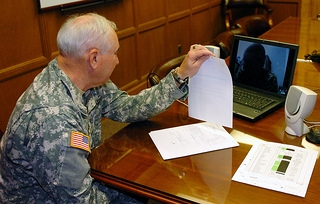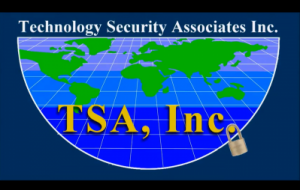Cover Letters – Make a Good First Impression

 Pax II
By Heidi France, TSA Exports Expert
Pax II
By Heidi France, TSA Exports Expert
In the nine years that I have been reviewing and pre-coordinating export license applications, one of the biggest complaints about obtaining an export license is the time factor – “How long will it take for my application to go through the system?”
Certainly one of the most important things to ensure an expeditious review is to make a good first impression; and by that I mean state your purpose clearly in a well-written explanatory letter. Having reviewed thousands of applications for the Department of the Navy as a Contractor, I have seen it all; from no cover letter (Gasp!), to a cover letter that only provides a point of contact (POC) at the applicant’s company, who happens to also be the HR manager / empowered official = just took an International Traffic in Arms Regulations (ITAR) boot camp last week, to eight-page cover letters that drag on (and put the reviewer to sleep) but not before Returning Without Action (“RWA-ing”) the application. Then of course, there are the letters that are well-written, concise and – believe me – refreshing to review so the process can move along as expeditiously as possible.
Per the ITAR (§124.12), only Technical Assistance Agreements (TAA) and Manufacturing Licensing Agreements (MLA) require an explanatory letter. It is also advisable to include an explanatory letter with all export license applications (DSP-5, DSP-61, DSP-73, and DSP-85). The required information is outlined within the regulations and quite procedural – detailed information is not mandatory, however, even with those requirements clearly outlined some letters barely make the mark.
Be sure to provide the company’s registration number, as well as contact information of the individual in your company / organization who can answer questions (should clarification be needed) about the application. A person reviewing the application at all levels within the Government review process will not hesitate to pick up the phone and call an applicant if additional information is needed. On more occasions than I would like to report, I have called a company to get clarification on a license (as a courtesy before denying or “RWA-ing”) and the person responsible for the application has had no technical background about the products or a clear understanding of why the license was sought. These occasions often led to a comprehensive discussion regarding the importance of ITAR training, the need for an internal export compliance program (for said company), and potential violations should adhering to the rules not be followed.
When writing a cover letter, be concise and provide clear details regarding background information and reasons why the license is needed. If a precedent case exists, include the case number and clearly identify the changes of the new application from the previous approved license. The reviewer of your application is not intimate with your company and writing your letter with this understanding, is a sound approach.
If the cover letter is for an Agreement (TAA or MLA), clearly state all of the involved parties in the Agreement. Too often I review applications and the end-user list in the electronic application does not match the end-user list provided in the letter. Any inconsistency can lead to delays in the application review.
If possible, in addition to the Government contract number, provide a knowledgeable point of contact within the appropriate DoD Program Office(s) who is aware of the application and in agreement with the purpose / intent of the license. In my experience, most DoD Programs have a single position through which licenses are staffed. That person then further staffs the license to the correct Technical POCs (TPOCs) within their Program office. If years have passed since your last application, update your POCs. I have seen names on licenses of people who have long since left a program / organization. Keeping abreast of employees and accurate organizational structures are important. Spelling, grammar, and clear requests are also very useful and helpful to the reviewer.
Incorporating a few of the above recommendations will certainly aid in the advancement of your application. The goal is to clearly explain to DoS why your application / license is needed, include the who, what, where, when, and why…if any of the basics are missing, more time is needed by DoS to review…which may negatively impact your business / organization.
The US DoS has a very useful link of frequently asked questions and answers: www.pmddtc.state.gov/faqs/index.html
Need help with export controls? TSA Inc. can help!
Heidi France is a Lead International Trade Specialist at Technology Security Associates, Inc. Email: h[email protected] Contributor: Jackie Sudore-Flood, International Trade Director, Email: [email protected]






















